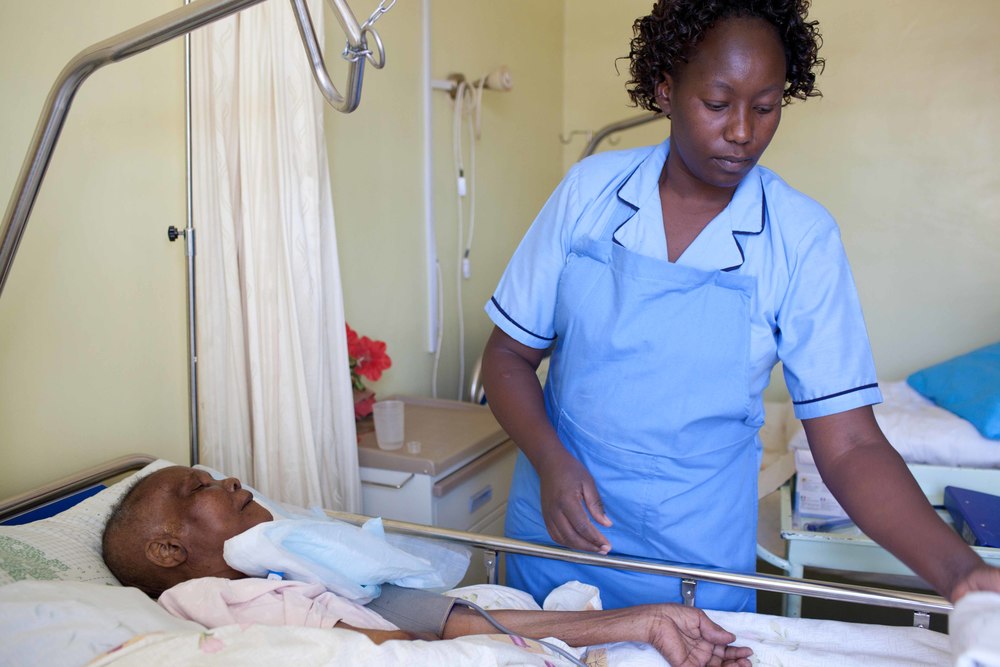The essence of clocking enough sleep hours is a theme that features prominently here at ThriveGlobal. Marina Khidekel mentions it when she writes how the South Korean government is asking its employees to leave work early and go home to relax in order to recharge their bodies and brain power. Geva Salerno goes on to tackle the topic in her article The Purpose of Sleep where she talks of things that might make you not sleep well. Rebecca Lott feels that sleep is as important as eating. The message is well captured by Arianna Huffington in her book The Sleep Revolution where she tackles the importance of sleep in taking back control of our lives. Well, I can’t agree more with them.
In my work as a hospice caregiver, sleep is an issue we regard with a lot of importance. If a patient is not sleeping well, we try everything we can to ensure that they clock at least 8 hours sleeping. In this article, I will explore some of the things that you can do to see to it that your home care patients are sleeping well.
1. Establish a bed ritual
I always want my patients to establish a certain ritual just before they go to bed. Once the ritual is established, their brains start associating the ritual with sleep time. Some of the rituals include: bathing, reading the Bible and meditation.
2. Create an environment conducive for sleep in the bedroom
All the patients’ bedrooms are dimly lit, have dull curtains and I do not allow any gadget such as a phone, iPad, laptop or tablet in their bedrooms. The bedroom is a sanctuary where sleep is made and it should therefore not be desecrated.
3. Caffeine and tea are a no-no at night
While they might demand that they want tea, coffee or other stimulants, I am very firm with my patients telling them that they cannot have such stimulants past 6.00pm because I want them to sleep. And yes, they might sulk at you calling you mean and all that but deep down inside your heart, you know that you are only denying them the beverages for their own good.
Sleeping pills and alcohol should also be avoided at all costs. And when talking of pills, there are these weight loss pills such as phenq which have been found to be laced with caffeine which you should include in your ‘to avoid’ list.
4. Get cozy mattresses and pillows
Some patients might be suffering from bed sores because of lying on the mattress in one position for too long. If you can afford it, get some pressure alternating mattresses and knee pillows to help the patients rest.
5. Establish safety from falls
The fear of falling off from the bed while asleep can make patients not to sleep well. You therefore need to get safety bed rails for their beds so that they feel secure while asleep. Though great in preventing the elderly from falling, rails can pose a danger of injuries to patients suffering from dementia who might hit themselves against the metallic bed rails. I have also seen patients with seizures hit their heads against the rails and the results were no good.
In such cases, I would advise you to get bed bumpers for adults. Bumpers serve the same purpose as rails in preventing patients from falls. The only difference is that they are soft since they are made from foam.
6. A big no to sleeping pills
Sleeping pills, the likes of ambien, lunesta and sonata are bad news to your health. Though they will help you with battling insomnia, they will at the end of the day cause addiction. I have found out that trying to get someone to withdraw from these pills is the hardest thing.
Infact it is harder than getting out of heroin or cocaine since rebound symptoms of withdrawing from sleeping pills include intense insomnia, hallucinations and anxiety. If someone is addicted to these drugs, you might have to take them to a good detox center where they will be taken through therapy sessions.


